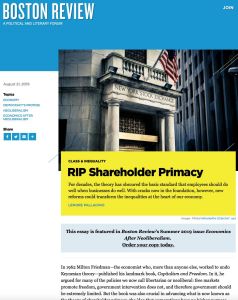
Recommendation
For decades, US corporations have adhered to the overarching rule of shareholder primacy – to maximize profits for their owners. In this astute analysis, economist Lenore Palladino challenges the validity of that narrow purpose, noting that shareholder primacy does not reflect the wealth created by employees and other stakeholders. She posits that new laws of governance can address the widening gap between rich and poor by distributing corporate gains more fairly among shareholders, management and workers.
Summary
About the Author
Lenore Palladino is an assistant professor of economics at the University of Massachusetts.
By the same author
Article









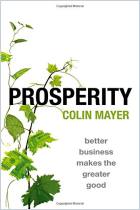
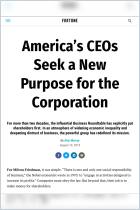
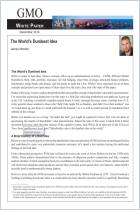
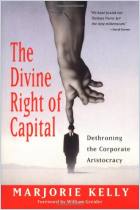
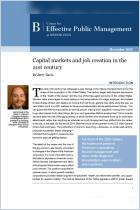





Comment on this summary or Start Discussion